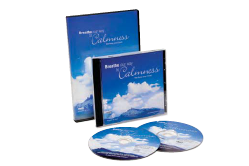The ability to hold a class completely spellbound lies within your voice. Your unique voice is the authentic connection between your inner self and the outside world. Through its timbre, pitch range and inflection, the voice is similar to a musical instrument and, when it works harmoniously, “The human voice is the most perfect instrument of all” (Arvo Part).
In the UK on average, voice loss costs schools approximately 80,000 sick days and £15 million every year. Therefore vocal training for teachers is a wise investment of time.
Your true vocal folds are tiny and incredibly hard working. They measure approximately the length of a 5 pence piece, sitting within your larynx.
On exhalation breath draws the true vocal folds into vibration. Approximately 235 vibratory cycles per second in the female speaking voice, 135 in the male. When singing this increases with each octave, a Top Soprano note can be 1500 vibratory cycles per second! The average person’s vocal folds meet over 4 million times daily.
The cartilages of the larynx tilt to alter vocal fold tension, greater tension causes thinner folds and higher pitch and tension reduction results in lower pitches.
Teachers are vocal athletes and warm up and cool down are vital for vocal health.
Make your journey into school your Warm Up Zone
Chew an imaginary toffee whilst humming, feeling a buzz on your lips. Circle tongue clockwise and anti-clockwise inside the mouth 8 times either way. Pop tongue between lips and gently glide up and down on mmm sound. On the way home simply exhale on zzzzz softly.
When you are in the classroom, remember simple ergonomics. Your head weighs 8 lbs plus, if your chin is thrust forward it impacts upon your vocal power causing tongue root tension. Imagine a helium balloon on the top of your head encouraging a long free neck. Your navel should always face your listener. Avoid locking your knees and stand with your weight evenly distributed. Voice is a whole body exercise.
Almost half of teachers admitted to feeling stressed or overwhelmed. Stress can have a negative effect upon your breathing pattern and subsequently voice.
Breathe your way to calmness by thinking calmness breathing 24/7:
Relax stomach. Inhale naval moves forwards, exhale it returns to the starting position. Ensure a daily breathing break and vocal nap. Two minutes a day can make all the difference.
Keep throat “tension free” by feeling a space at the back of your throat when speaking. Imagine your cheer and fist pump if you won teacher of the year.
Vocal Respect. If your voice is tired, avoid shouting/singing/humming. Do not whisper and never work through a cold/sore throat. Resting the voice speeds up recovery. Avoid competing with background noise.
Only raise your voice if confident in safe shouting technique. Try to ensure children face you when you speak to them. Keep breathing consistent and avoid holding your breath when listening.
Chilly weather requires a fashion statement scarf to warm laryngeal neck and shoulder muscles.
Laryngologist Garfield Davies advises “The vocal folds are happiest in the atmosphere of the Kew Gardens Hothouse”. Aim to drink 6-8 glasses still room temperature water throughout the day as it takes four hours for water to hydrate vocal tract mucosa.
Caffeine is a dehydrating stimulant. One cup of real coffee (300 mg or less) is ideal. Avoid spirits. Choose wine or champagne instead, but probably not before a class or with breakfast! Match alcohol/caffeine intake with extra water. Allow your food and drinks to cool and consume them slowly to keep vocal tract relaxed. Higher Cocoa content chocolate is ideal for chocolate lovers. Diet weight gain and stress can cause acid reflux which harmfully affects vocal folds. Smoking will damage your voice. It is similar to blowing a hairdryer onto your voicebox. Contact your GP re quitting but in the meantime ensure you do not speak as you exhale and avoid smoky environments and dry ice.
Avoid habitual throat clearing. As well as giving the impression of nervousness it produces more mucus whilst straining the vocal cords. Sip water, or swallow gently twice. Blackcurrant and glycerine pastilles or short bursts of whitening chewing gum are effective vocal tract lubricants. Avoid menthol or medicated pastilles.
Humidify your atmosphere whenever possible. If using antihistamines increase your water intake as these have a drying effect upon the mucosal layer.
Avoid Aspirin. It increases the possibility of a haemorrhage including the vocal folds. If prescribed, check with your GP.
Asthma sufferers when using an inhaler, drink water afterwards.
Inhale plain steam to relax hydrate and soothe the throat. Ideally, before bed, not pre heavy voice use. Water will not reach the vocal cords so steaming is the most effective method of hydration.
As a teacher, your voice is one of your most powerful means of effective communication. It can impart information, convey emotion and provide an inspiring model for pupils. Nurture it. Remember “Raise your words, not your voice, for it is rain that grows flowers not thunder” (Rumi).

Penny Anne O’Donnell is a Specialist Speech Language and Voice Therapist and relaxation advisor in independent practice and Co-Founder of Voice Camp Warwickshire. To learn more about her bespoke Teachers Voice Workshops visit https://www.voicetraininguk.co.uk/
For information regarding her DVD & CD series “Breathe Your Way To Calmness” and relaxation seminars classes for either adults and/or children visit www.relaxationdirect.co.uk
For Voice Camp Warwickshire information email pennyanneod@gmail.com and find us on Facebook.
Follow her on twitter @relax_therapy
YouTube: https://www.youtube.com/user/pennyanneod

Please login to view this content
Login